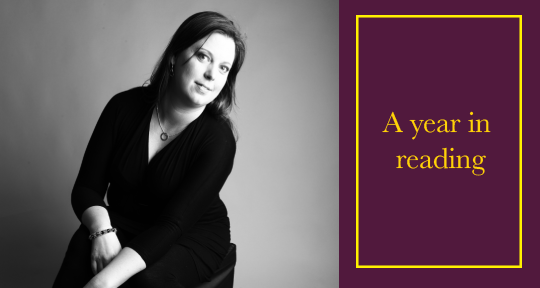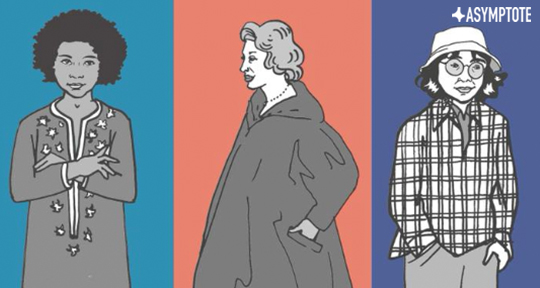Next up in our A Year in Reading series is Eva Wissting, Asymptote’s Editor-at-Large for Sweden. A book reviewer and an avid book club member when she is not contributing to Asymptote, Wissting shares with us the literary discoveries that lit up her 2019.
At the beginning of this year, I started reviewing books for a Swedish online site, Dagensbok, which has published one book review every single day since the year 2000. I first stopped by the office to pick up books to write about around this time of year, during what we in Sweden call “the middle days”—the slow and lazy days between Christmas and New Year’s Eve that feel like holidays, even though they’re not really. The entire office building appeared to be empty, except for me and the editor whom I was there to meet. To walk up to a filled bookshelf and be told that I could pick anything, get to write about it, and people, supposedly, would read what I’d written—this, for sure, was a second Christmas.
One of the books I picked up that day I most certainly wouldn’t have come across otherwise. It’s an amazing Finnish-Swedish poetry and graphic book by Jolin Slotte and Pauliina Pesonen, about finding your own words and your own voice in difficult circumstances, even when it labels you a traitor. The word-for-word translation of the Swedish title is All These Dead Eyes. The whole book is in black and white, and each right-hand side in Finnish is accompanied by a left-hand side in Swedish. I don’t speak or read Finnish, but this book is constructed so that you only need to understand one of the languages. And then, of course, the words are also accompanied by the beautifully drawn images, which is yet another language. Considering how many of us live with multiple languages—whether we fully master them or they exist more as a backdrop—it surprises me how rare truly multilingual books are.
Another book I discovered thanks to Dagensbok was Kristen Roupenian’s short story collection You Know You Want This, which I read and reviewed in the Swedish translation by Amanda Svensson. It wasn’t until I got to the story “Cat Person” that I realized I had read this author, and this short story, before—though by then I was already completely hooked on this careful study of evil. The stories are written with a great sense of craft, not only in carving out a narrative, but also in understanding how humans operate. These are also horror stories, though not the kind with monsters or ghosts or other supernatural elements; the evil in these short stories comes from within the relationships between people––normal, everyday people like you and I—which is the most horrifying kind of horror stories there are. “Cat Person” differs from the other stories in the collection in that the evil is not so clearly expressed. This is the short story that was published back in 2017 by The New Yorker and went viral. Not a lot of short stories go viral. Not a lot of emerging writers have their short stories published by The New Yorker and then have them go viral. This is certainly an author I look forward to following. READ MORE…



